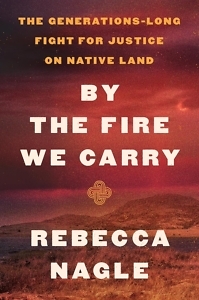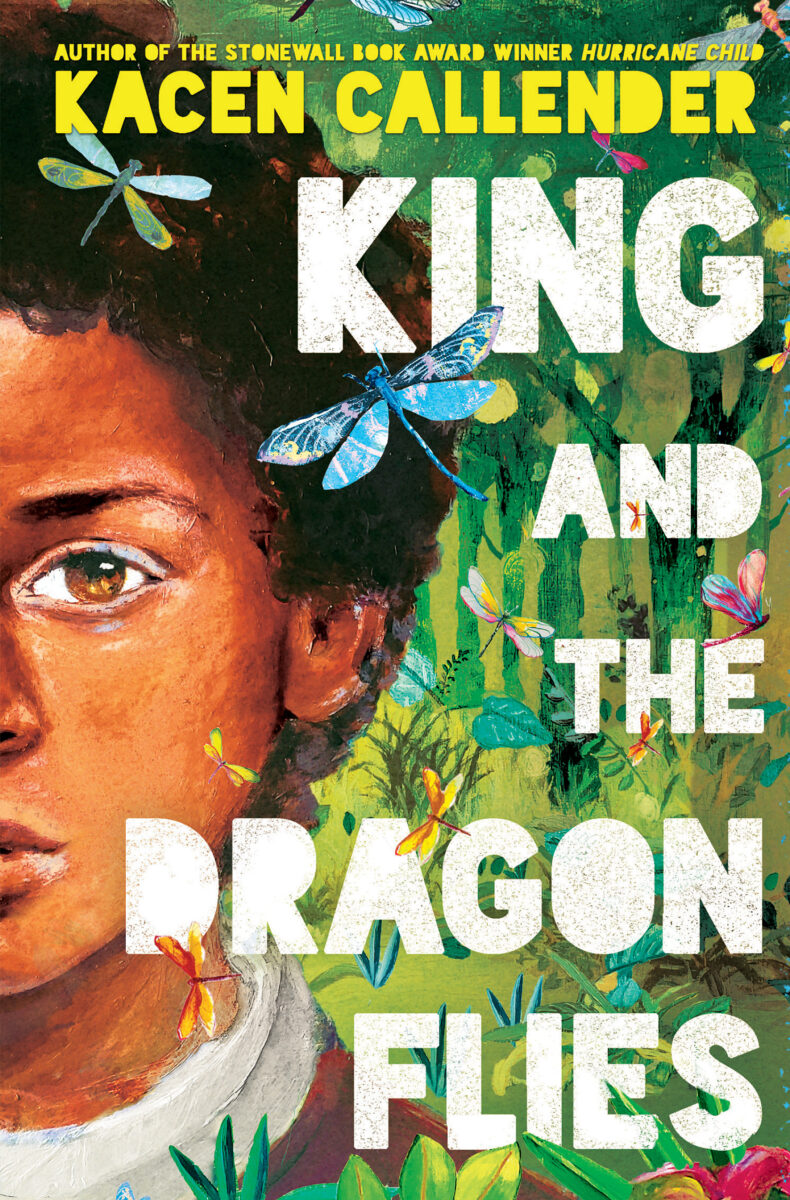Betrayal and Justice
By the Fire We Carry tells a story of Native American land lost and regained
By the Fire We Carry, a fine book by Cherokee journalist Rebecca Nagle, tells how the Five Tribes of frontier history (Cherokee, Chickasaw, Choctaw, Muscogee, and Seminole) were dispossessed first of their Southeastern homelands, then of their reservation lands in Oklahoma — until finally, against the odds, they won back their treaty rights in court.

Nagle unfolds two stories, her people’s and her family’s, showing how a family’s burdens may play out the broad calamities of history, while shifts of history may pivot on petty incidents and obscure places. The book conveys a lacerating view of the Cherokee Nation’s checkered history and a guarded hope for the revival of tribal life and authority.
Nagle’s ancestors include Cherokee leaders John Ridge and Major Ridge. She grew up knowing their portraits in her grandmother’s living room and their headstones in her family cemetery. Their part in history she first sensed, as a child, from a museum exhibit on the Trail of Tears, the Cherokee people’s forced removal to Oklahoma. The museum, she remembers, displayed the portraits she knew. “Only here there was a new word, one I had never heard my grandmother say: ‘traitors.’”
The Ridge family fought alongside Andrew Jackson against the Red Sticks at the battle of Horseshoe Bend. Later, under the pressure of Jackson’s pitiless Indian Removal Act, the Ridges helped push through the Treaty of New Echota, surrendering the Cherokees’ ancestral lands and agreeing to move west of the Mississippi.
This was a devil’s bargain. Nagle believes the Ridges thought it would save their people, though they knew most Cherokees did not want to yield their land. Only 300 gathered to negotiate the treaty; more than 14,000 angrily signed petitions calling the treaty invalid and fraudulent. The Ridges also knew (having helped pass the law themselves) that Cherokee law made it death to cede tribal land without authorization.
In 1838, the Cherokee were forcibly marched west. After the tribe reached Oklahoma, the Ridges were killed — struck down by men who had opposed the treaty and suffered during removal.
For Nagle, this history compels a bitter visit to Nashville and the Hermitage. “I nervously guided myself to Andrew Jackson’s grave,” Nagle writes. “I waited until I thought no one was looking. And then I spat on his grave. … In my family Andrew Jackson’s betrayal is personal.”
 More betrayals followed. After the Civil War, the tribes lost half their lands for siding with the Confederacy. Remaining tribal lands were broken up, parceled into “allotments” held by individuals. In the early 1900s, as the oil boom gripped Oklahoma, many Muscogee allotment holders were cheated out of the mineral rights to their land — often by being placed under legal guardianships controlled by oilmen and conmen. (The tribes’ experience rhymes with the reign of fraud and terror portrayed in David Grann’s Killers of the Flower Moon, which focused on the Osage Nation.)
More betrayals followed. After the Civil War, the tribes lost half their lands for siding with the Confederacy. Remaining tribal lands were broken up, parceled into “allotments” held by individuals. In the early 1900s, as the oil boom gripped Oklahoma, many Muscogee allotment holders were cheated out of the mineral rights to their land — often by being placed under legal guardianships controlled by oilmen and conmen. (The tribes’ experience rhymes with the reign of fraud and terror portrayed in David Grann’s Killers of the Flower Moon, which focused on the Osage Nation.)
After a century of oppression and malign neglect, Indian tribes seemed to have lost all authority. Ironically, these historical wrongs were righted by modern rulings in federal court.
In August 1999, in a senseless brawl on an Oklahoma country road, Patrick Murphy knifed his girlfriend’s former boyfriend. Convicted of murder, Murphy appealed. In a last-ditch effort, Murphy’s lawyer maintained that the state of Oklahoma had no jurisdiction: Murphy and the man he killed both belonged to the Muscogee Nation, and the killing had taken place on the Muscogee reservation, “Indian country.”
Lawyers for the state argued that no reservation lands remained in Oklahoma, but the Supreme Court agreed with the Indians. In 2020, in Sharp v. Murphy (and another landmark case, McGirt v. Oklahoma), the court ruled that state criminal law did not apply to Muscogee tribal members on Muscogee land. Because Congress had never formally disestablished the Muscogee reservation, it remained in existence. “Indian country,” long a lawyers’ term of art, suddenly acquired political and cultural resonance. Most of eastern Oklahoma counted as Indian country.
In this, Nagle finds vindication for her people. “For me, the promise [of Murphy and McGirt] was always viscerally connected to the sacrifice of my ancestors. One hundred eighty-two years after the assassination of John and Major Ridge, the treaty territory of Cherokee Nation could no longer be denied.”
Court rulings on land rights, Nagle acknowledges, do not erase the injustices of history. But the borders that they draw protect language — the Cherokee syllabary characters in which she spells out Major Ridge’s name, the Muscogee tongue that an elderly friend teaches to college students — and language sustains culture. “Whenever we lost land,” Nagle writes, “our languages and culture also suffered. Conversely, where we held on to land is often the place where culture is still practiced and Indigenous languages are still spoken.”
Distant decisions allow such small, all-important victories.

Allen Boyer was born in Memphis and grew up in Oxford, Mississippi, on territory ceded by the Chickasaw. He now writes in New York City, on land transferred from the Lenape to the English.


